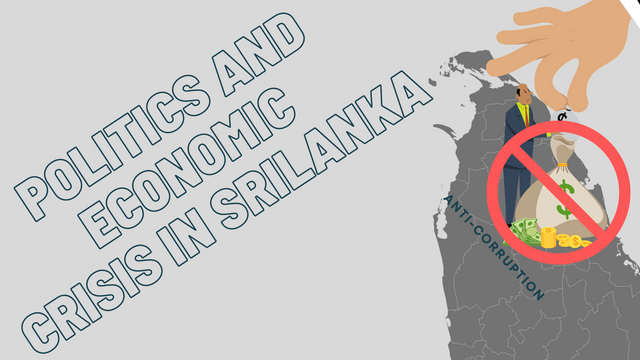
Sri Lanka has a long and complex political history, marked by periods of both stability and turmoil. In recent years, the country has struggled with high levels of corruption, which has had a significant impact on its economy.
One of the major issues in Sri Lanka's political history has been the longstanding ethnic conflict between the Sinhalese majority and the Tamil minority. This conflict, which has roots in the colonial period, has resulted in civil war, political instability, and economic disruption. In addition to the ethnic conflict, corruption has also been a major problem in Sri Lanka. The country has consistently ranked poorly on international measures of corruption, and corruption scandals have plagued successive governments. This has led to a lack of public trust in government institutions and a lack of investment in the country.
The current economic crisis in Sri Lanka is a result of these political and corruption issues. The country's economy has been struggling for several years due to high levels of debt, low levels of foreign investment, and a lack of economic growth. The ongoing COVID-19 pandemic has further exacerbated the situation, leading to widespread job losses and economic hardship.
In order to address the economic crisis, the government of Sri Lanka must address the underlying political and corruption issues that have contributed to the crisis. This will involve implementing reforms to reduce corruption, addressing the ethnic conflict, and promoting economic growth. Additionally, the government will need to work closely with international organizations and other countries to secure financial assistance and support for economic recovery
It is difficult to predict exactly what will happen to the Sri Lankan economy in the future, as it is subject to a variety of factors, both internal and external. However, some potential developments and challenges that could impact the economy are
The government's ability to implement economic reforms and address corruption: If the government is able to implement reforms to reduce corruption and promote economic growth, it could help to improve the country's economic prospects. However, if corruption and political instability continue to be major issues, it could impede economic recovery.
Developing industries and economic sectors: The government of Sri Lanka is focusing on developing new industries and economic sectors, such as IT and services, to diversify the economy, which could provide new opportunities for growth.
Addressing the ethnic conflict: The long-lasting ethnic conflict between Sinhalese majority and the Tamil minority have affected the country's economy, tourism and foreign investment. If the government is able to address this conflict, it could help to improve the country's economic prospects.
Overall, the future of the Sri Lankan economy will depend on a variety of factors, and will likely be influenced by both internal and external developments. It will be important for the government to take steps to address corruption and political instability, promote economic growth, and maintain a stable macroeconomic environment. If the government does not provide solutions to these problems, there is bound to be another struggle. Sri Lanka's progress is determined by your vote